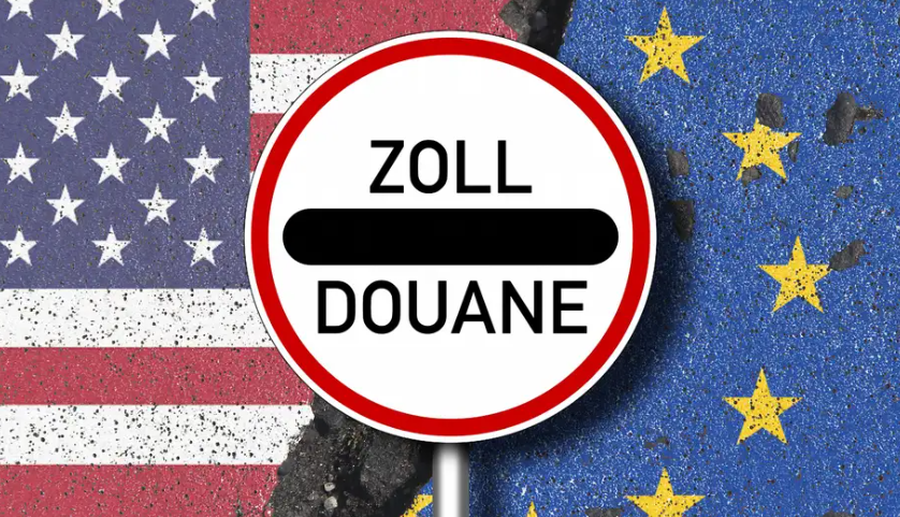
Is the trade deal with the US close? The European Parliament supports the EU negotiations. But it is against the deal at any price.
"We are in constant contact with our colleagues across the Atlantic to ensure that we make sustainable and substantial progress," stressed EU Trade Commissioner Maros Sefcovic during the debate in the European Parliament on the trade dispute with the US.
While the situation in the EU has eased somewhat after US President Donald Trump extended the deadline for higher tariffs on EU goods, the EU Commission's work on a deal with the US is still under time pressure. Commissioner Sefcovic hopes for "satisfactory results", perhaps in the coming days.
Trump's letter to the EU is still pending
Trump wrote to several countries last week threatening new tariffs if a deal is not reached. The European Union has yet to receive any letters. Trump promised a letter within the next two days on Tuesday.
Although the EU is very interested in an agreement, EU Commission spokesman Olof Gill explains: "An agreement now depends on the willingness to reach an acceptable outcome for both sides."
What might such an agreement look like?
The details of such an "agreement", or as the EU calls it, an "agreement in principle", are not officially known. However, the Reuters news agency reports that the EU wants to reduce the current 25 percent tariffs on the automotive industry. Germany, in particular, would benefit from this. Additional US tariffs are in force against steel and aluminum imports from the EU.
Trade Committee Chairman and Social Democrat MEP Bernd Lange spoke in Strasbourg about the possibility of agreeing exemptions from the 10 percent basic tariff. This could include aircraft and their parts, cosmetics and medical products. Trade Commissioner Sefcovic also sees the agreement with the US as a framework for a future full trade agreement between the two economic areas.
A friendlier tone between the US and the EU
The tone between the EU and the US has changed significantly recently. Trump spoke of "very friendly" talks with EU Commission President von der Leyen and "the whole group" - by which he apparently meant the EU. The EU also reported a "good exchange" between von der Leyen and Trump after a phone call over the weekend.
But even with the conclusion of a preliminary agreement, the Social Democrat Lange does not see all the problems solved. He is calling for a suspension clause to prevent Trump from imposing new tariffs on the EU during the negotiations. So far, the US has not agreed to this.
In fact, Trump has already announced so-called sectoral tariffs. For example, there would be a 50 percent tariff on copper. He plans to make an announcement on pharmaceutical products soon.
EU Parliament: "Don't let Trump bully us"
The debate between the Trade Commissioner and EU parliamentarians also showed that the trade conflict with the US is unlikely to be resolved with a deal. Green MEP Virginiajus Sinkevicius, in particular, stressed that it was about more than just trade: We cannot allow ourselves to be bullied by Trump.
"We should not sell our values for a quick solution. Especially since we don't even know if there is a sunset clause," the former EU Commissioner stressed.
Social Democrat Kathleen Van Brempt also warned against a deal at any price. "We are not interested in a deal with Trump. We are interested in our workers, their jobs, their livelihoods and our companies," Van Brempt said.
As a member of the conservative European People's Party, the largest group in the European Parliament, Michał Szczerba emphasizes the importance of transatlantic trade for both sides.
It broadly supports the Commission's approach to finding a mutually beneficial agreement. However, a strong plan for countermeasures is also needed if negotiations fail.
The far-right camp blames the EU
Not all MEPs see it that way. Jacek Ozdoba, who represents the right-wing conservative ECR group in the European Parliament, believes the EU is the problem.
While Trump is fully committed to fossil fuels, Europe wants to ban diesel vehicles, among other things. A competitive EU that wants good trade relations with the US should act differently, the Pole explained.
However, many parliamentarians are concerned that the EU should not allow interference in legislation. Trade Commissioner Sefcovic assured them that EU regulations are non-negotiable. A joint statement with the US would not change this./ DW (A2 Televizion)











